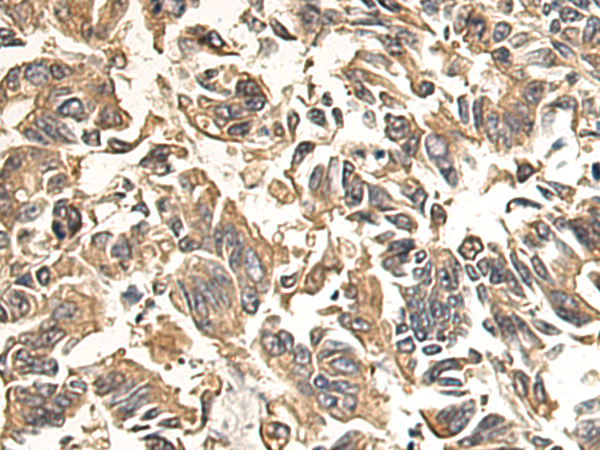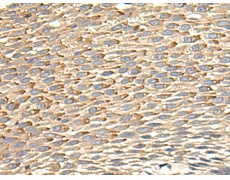中文名稱:小鼠抗AKT1單克隆抗體
|
Background: |
The serine-threonine protein kinase encoded by the AKT1 gene is catalytically inactive in serum-starved primary and immortalized fibroblasts. AKT1 and the related AKT2 are activated by platelet-derived growth factor. The activation is rapid and specific, and it is abrogated by mutations in the pleckstrin homology domain of AKT1. It was shown that the activation occurs through phosphatidylinositol 3-kinase. In the developing nervous system AKT is a critical mediator of growth factor-induced neuronal survival. Survival factors can suppress apoptosis in a transcription-independent manner by activating the serine/threonine kinase AKT1, which then phosphorylates and inactivates components of the apoptotic machinery. Mutations in this gene have been associated with the Proteus syndrome. Multiple alternatively spliced transcript variants have been found for this gene. |
|
Applications: |
WB, IHC |
|
Name of antibody: |
AKT1 |
|
Immunogen: |
Fusion protein of human AKT1 |
|
Full name: |
V-akt murine thymoma viral oncogene homolog 1 |
|
Synonyms: |
AKT, PKB, RAC, PRKBA, PKB-ALPHA, RAC-ALPHA |
|
SwissProt: |
P31749 |
|
IHC positive control: |
Human lung cancer and Human liver cancer; Human colorectal cancer and Human esophagus cancer |
|
IHC Recommend dilution: |
100-500 |
|
WB Predicted band size: |
56 kDa |
|
WB Positive control: |
Hela, 231, PC-3 and HepG2 cell lysates |
|
WB Recommended dilution: |
1000-5000 |



 購物車
購物車 幫助
幫助
 021-54845833/15800441009
021-54845833/15800441009
